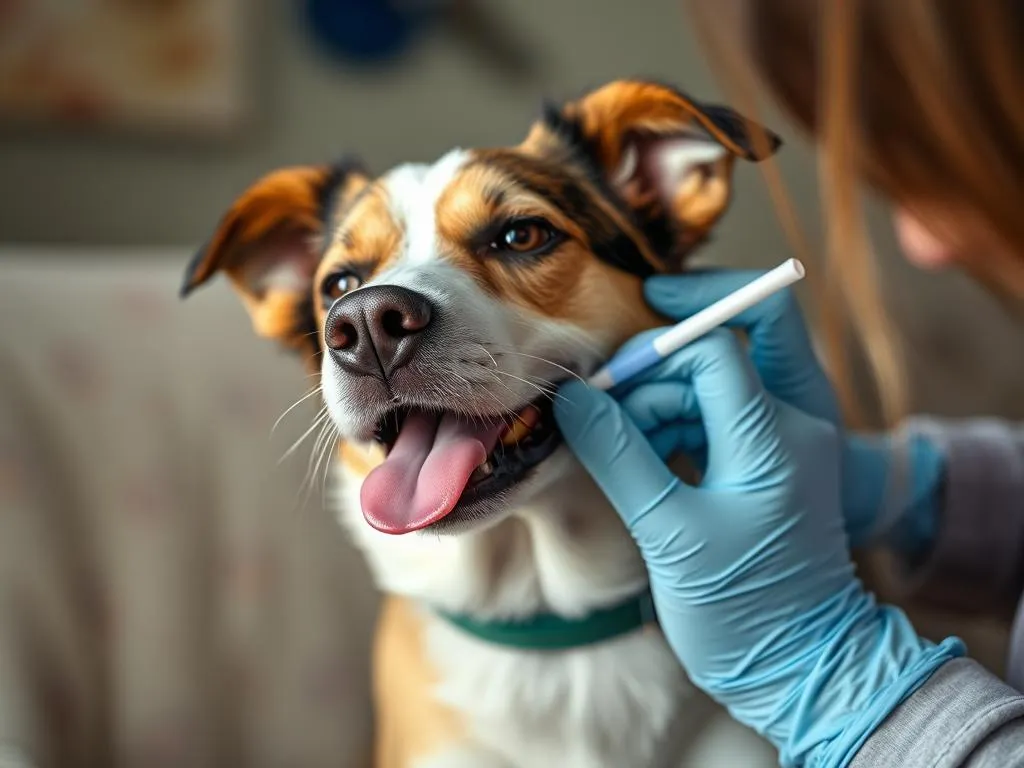
Introduction
Dog health care is a vital aspect of pet ownership that ensures your furry friend leads a happy and healthy life. One of the significant health issues that many dog owners encounter is allergies. Allergies in dogs can stem from various sources, including environmental factors and food. Understanding how to identify these allergies and how to manage them is crucial for maintaining your dog’s health.
When your dog exhibits symptoms like itching, redness, or gastrointestinal issues, it may be time to consider dog allergy testing. This leads us to a common question among pet owners: how much does dog allergy testing cost? This article aims to provide you with a comprehensive overview of dog allergies, the testing process, costs involved, and what you can expect afterward.
Understanding Dog Allergies
What Are Dog Allergies?
Dog allergies are a hypersensitive reaction to certain substances known as allergens. These allergens can vary widely, but common culprits include pollen, certain foods, fleas, and even some household products. When a dog is exposed to an allergen, their immune system mistakenly identifies it as a threat, resulting in various symptoms.
Symptoms of allergies in dogs can manifest in multiple ways, including:
- Itching: Persistent scratching or biting at the skin.
- Redness: Inflamed skin areas, especially around the face, paws, and belly.
- Gastrointestinal issues: Vomiting or diarrhea, often associated with food allergies.
- Ear infections: Frequent ear issues can also indicate underlying allergies.
Types of Dog Allergies
Dog allergies can generally be classified into four primary types:
- Environmental allergies: These include reactions to pollen, mold, dust mites, and other airborne substances.
- Food allergies: Dogs can develop sensitivities to specific ingredients in their food, such as grains or proteins.
- Flea allergies: Some dogs are allergic to flea saliva, leading to severe itching and irritation.
- Skin allergies: These can be caused by contact with certain materials or chemicals, leading to localized reactions.
Importance of Allergy Testing
Understanding the specific allergens that affect your dog is essential for effective management. Allergy testing plays a crucial role in diagnosing the problem accurately, allowing for a tailored treatment plan that can significantly improve your dog’s quality of life.
Overview of Dog Allergy Testing
Types of Allergy Tests
There are several types of tests available for diagnosing dog allergies:
- Skin tests: This involves injecting small amounts of allergens into the skin to observe reactions. It’s a common method that provides quick results.
- Blood tests: These involve drawing blood to measure the immune system’s response to specific allergens. While less invasive, results may take longer.
- Elimination diet tests: This method involves removing potential allergens from your dog’s diet and gradually reintroducing them to identify food sensitivities.
How Allergy Testing Works
The process of allergy testing typically begins with a consultation with a veterinarian. They will review your dog’s medical history and symptoms before deciding on the appropriate testing method.
During a skin test, your dog will have small amounts of allergens injected into their skin, and the vet will monitor for any reactions. For blood tests, a sample will be drawn and sent to a laboratory for analysis. If an elimination diet is recommended, you will work with your vet to establish a controlled feeding routine.
Benefits of Allergy Testing
Allergy testing offers numerous benefits, including:
- Accurate diagnosis: Identifying the specific allergens allows for targeted treatment.
- Tailored treatment plans: Based on test results, your vet can recommend the most effective treatment options.
- Improvement in quality of life: Addressing allergies can greatly enhance your dog’s comfort and overall well-being.
The Cost of Dog Allergy Testing
Average Costs
The cost of dog allergy testing can vary significantly based on the type of test and the clinic you visit:
- Skin tests: Typically range from $200 to $300.
- Blood tests: Usually cost between $150 and $300.
- Elimination diet tests: Costs can vary widely depending on the food purchased and the duration of the diet, generally ranging from $100 to $300.
Overall, the average cost for allergy testing can fall anywhere between $200 and $600, depending on the specifics of the case.
Factors Influencing Cost
Several factors can influence the overall cost of allergy testing:
- Geographic location: Prices may differ significantly from one region to another.
- Type of veterinary clinic: Specialty clinics often charge more than general practices due to their advanced expertise and facilities.
- Additional expenses: Consultation fees, follow-up visits, and any necessary treatments or medications can add to the overall cost.
Insurance Coverage
Many pet owners consider pet insurance to help offset the costs associated with dog allergy testing. When looking for insurance options, it’s essential to read the fine print regarding coverage for allergy testing. Some policies may cover the costs, while others may not.
To get the most from your pet insurance, consider the following tips:
- Research policies thoroughly: Compare different providers and their coverage options.
- Ask specific questions: Inquire about coverage for allergy testing and related treatments.
- Keep records: Document all veterinary visits and expenses to facilitate claims.
After Allergy Testing
Interpreting Test Results
Once the testing is complete, your veterinarian will discuss the results with you. Understanding whether the results are positive or negative is crucial in determining the next steps. A positive result indicates that your dog has a sensitivity to a specific allergen, while a negative result suggests that the symptoms may be due to other factors.
Treatment Options
Depending on the results, your veterinarian may recommend various treatment options, including:
- Allergy medications: Antihistamines or steroids may be prescribed to alleviate symptoms.
- Immunotherapy: Allergy shots can help desensitize your dog to specific allergens over time.
- Dietary changes: If food allergies are identified, switching to a hypoallergenic diet may be necessary.
Ongoing Management
Managing your dog’s allergies doesn’t stop after testing and initial treatment. Regular check-ups with your veterinarian are essential for monitoring your dog’s condition. Maintaining a healthy environment can also play a critical role in minimizing exposure to allergens. Here are some tips for ongoing management:
- Regular grooming: Frequent baths and brushing can help reduce allergens on your dog’s skin and coat.
- Cleaning your home: Regular vacuuming and using air purifiers can decrease the presence of airborne allergens.
- Monitoring symptoms: Keep an eye on your dog for any changes in behavior or symptoms, adjusting treatment as necessary.
FAQs about Dog Allergy Testing
Common Questions Pet Owners Ask
- How long does the testing process take?: The testing process can vary, but most procedures can be completed in one visit. However, result interpretation may take a few days, especially for blood tests.
- Are there any risks associated with allergy testing?: Generally, allergy testing is safe. Skin tests may cause mild irritation or swelling at the injection site, while blood tests come with minimal risks associated with drawing blood.
- What if my dog has multiple allergies?: If your dog tests positive for multiple allergens, your veterinarian will work with you to develop a comprehensive treatment plan that addresses each allergy.
Conclusion
Understanding dog allergies and the importance of testing is crucial for every responsible pet owner. Dog allergy testing can uncover the root causes of your dog’s discomfort and pave the way for effective treatment. Proactive health care can make a significant difference in your dog’s quality of life, so if you suspect your dog has allergies, consult with your veterinarian to explore testing options.
Sharing experiences and discussing concerns with fellow pet owners can also be beneficial. Whether you have questions or insights about dog allergies, engaging with a community can provide valuable support.









